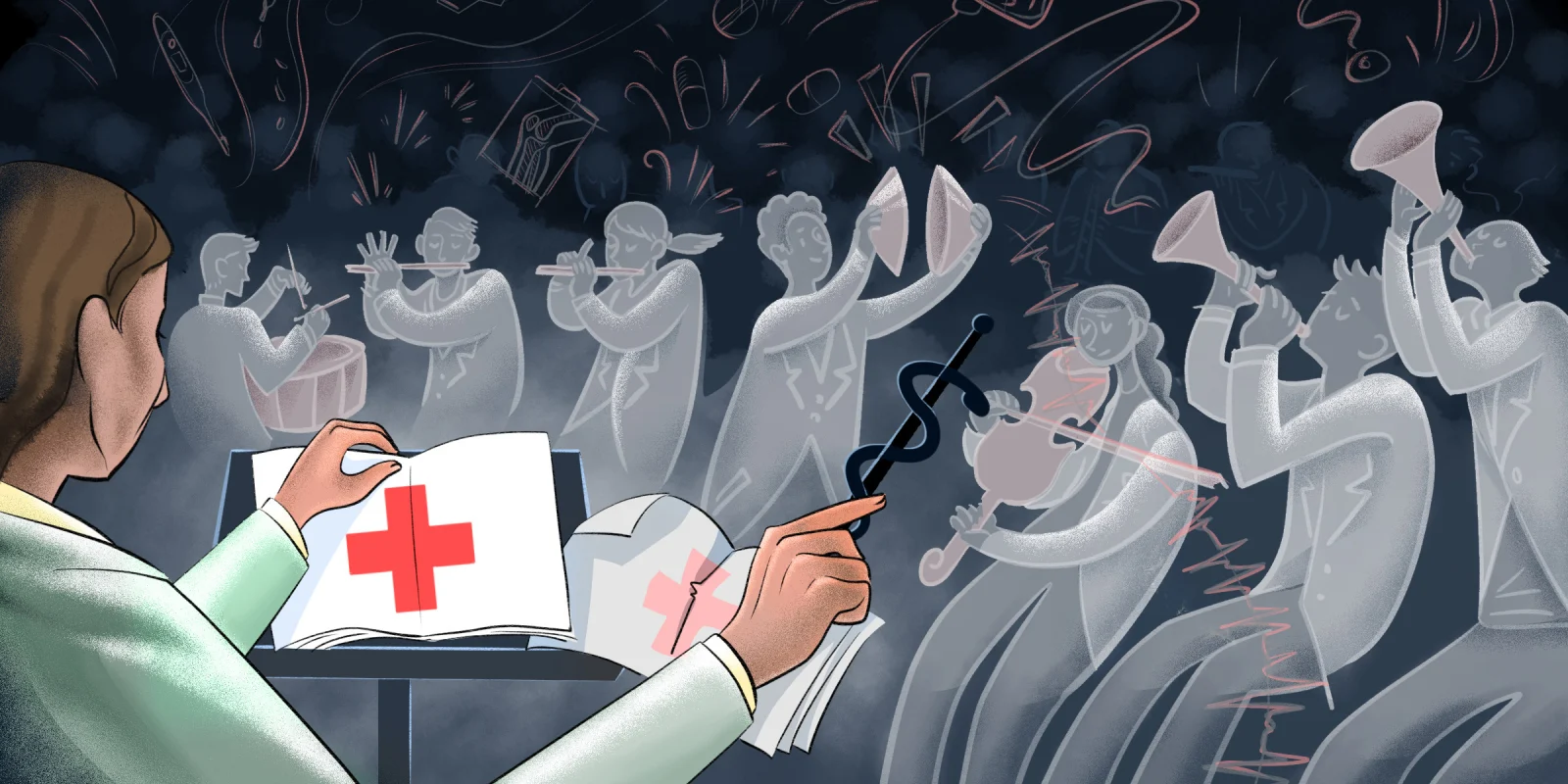One of the most meaningful compliments I have ever received was from an intern who told me that I was the most supportive senior resident he has ever had. As I approach the end of my residency medical training, I have come to realize that being a senior resident is as much about medical expertise as it is about mentorship, advocacy, and management. Being a senior is the first step on a journey to becoming a leader in medicine, and it is important to be intentional about shaping yourself as the kind of attending/leader you want to be.
To follow are my reflections on the role a senior resident plays and how they can support other trainees.
Teaching. As a senior resident, you know a lot more than you think you do. Take the time to write out two to three “chalk talks” that you can deliver in about 10 minutes. It’s worth preparing these ahead of time so you have them on hand when there’s some down time for teaching. I take a photo of the finished talk on my cell phone and save it in Apple’s Notes app for quick reference when I’m teaching.
Advocate for the team. You serve as the interface between the attending and the interns. Speak up when something isn’t working or when the workflow could be tweaked. You have your finger on the pulse of what the team needs and what the patients need, and you also have an understanding of the big picture.
Snacks. Self-explanatory. At the end of a long stretch, when we are on day eight to 10 without a day off, snacks provide a much-needed morale boost.
Teach the interns even when it slows everything down. I remember at the end of one call shift on New Year’s Day, my senior walked me through the laborious process of filling out the necessary paperwork after a patient passes away. We were exhausted and sad but none of that reflected in the patience she showed me as I stumbled my way through. Another senior unhesitatingly stayed past signout to supervise me in placing a line so that I could have the experience. I owe my competence to the seniors who had the patience to teach me.
Be very nosy. In the EHR, I flag all new orders on our patient list and keep track of every order the interns place. This way, the interns can be autonomous while also allowing me to quickly catch any issues. Your job as a senior is to support the interns but also to medically supervise the care we deliver to patients.
Point them toward paths of success. When an intern shares a specific interest, I try to point them to faculty or co-residents who have similar interests. As someone who has been in the institution for a year or more, you have insight into who is a good mentor, who has a project and needs help, etc.
Help the medical students. Teaching and guiding medical students should primarily be your role as the senior. While the interns finish pre-rounding, I have offered to go through presentations with the med students and give input and feedback before they present to the attending. Also, it’s your job to send them home as early as possible!
Help with tasks. I remember as an intern thinking that there was no way this was a one-person job. As a senior, I have offered to help with tasks like calling consults, putting in admission orders, etc. It’s important to let the interns learn and grow and not take away learning opportunities, but at some point, it’s also important to pitch in for the team so the work can be done and everyone can go home.
As an upper-year senior, you’re also a resource to the junior residents. In our internal medicine residency program, there are only a few rotations where the prescribed role of the junior resident (JAR) and senior resident (SAR) are different. For the most part, the JARs are in a senioring role supervising interns. However, although the role technically may be the same, I have realized the significance of the guidance and support SARs can offer JARs. For example, overnight, I have found myself supporting JARs by talking through admissions, coming for backup when evaluating their decompensating patient, and going over lab data/EKGs. More often than not, I’m validating what they already know; however, that backup is critical. The support role that you play for junior residents is different than it is for interns, but it’s invaluable.
Protect your interns. I had a senior who told me to let him know if any patients, consultants, or ancillary staff were cruel or abusive and he would take over interfacing with them. That genuine offer made me feel so safe and protected. As a senior resident, I have always told my interns the same. I have taken over care for — including signing in as the responding/covering physician — patients who have made death threats, used racial slurs, thrown objects at my interns, and sexually harassed them. I’ve spoken to consultants who were dismissive, angry, and unkind. I have had tough conversations with patients’ families to set boundaries to protect the team. As seniors, you often have more emotional bandwidth, experience, and time than the interns do and are better equipped to manage challenging interactions in a generally more productive and constructive manner. The interns have enough on their plate without facing abuse.
The growth of a senior resident extends beyond medical knowledge. Through teaching, advocacy, and hands-on support, you not only contribute to the well-being of your teams and trainees but also plant the seeds for a more compassionate and resilient medical community. As I transition out of residency, I carry with me these important lessons in mentorship and leadership.
How would you describe the role of a senior resident? Share your thoughts below.
Corinne Carland is an internal medical resident at the University of Pennsylvania in Philadelphia. She is interested in health tech, clinical informatics, cardiology, and genomics/proteomics. Outside of work she enjoys walking/running along the river, trying new ice cream spots, and exploring museums. Dr. Carland is a 2023–2024 Doximity Op-Med Fellow.
Illustration by April Brust





